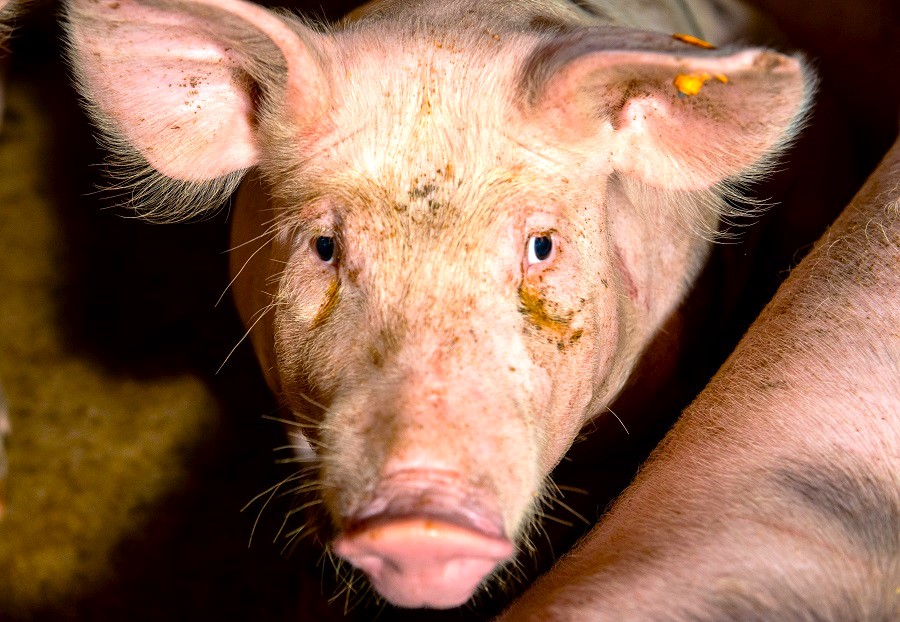How prevention can reduce the need for antibiotics

Antimicrobials play an important role in veterinary medicine and human medicine, as antibiotics reduce suffering and mortality while lowering the risk of spreading diseases among animals and humans. The use of antimicrobials in food production has contributed significantly to improved animal welfare and safer production systems. However, excessive and inappropriate use of these important tools can threaten human health and undermine the long-term viability of agrifood systems. Indeed, the misuse of antimicrobials contributes to bacterial resistance, with negative consequences for animal health, human health and the environment. Resistant strains of bacteria threaten to increase animal suffering and loss and reduce the effectiveness of antimicrobial treatments in both human and veterinary medicine.
FAO’s strategies to reduce antibiotics and antimicrobial use
One of the major challenges we face today is to combat the threat of antimicrobial resistance (AMR). Reducing the need for antimicrobial use in the food and agriculture sectors, can help to preserve the effectiveness of antimicrobials and play a part in reducing the risk for AMR development. This is why FAO developed the 2016-2020 and 2021-2025 AMR Action Plans, which provide strategic guidance to help countries implement sustainable practices that protect health, food production and the environment.
As part of the FAO initiatives on FAO, they launched a 10-year initiative to reduce the need for antimicrobials on farms for sustainable agrifood systems transformation, the so-called RENOFARM initiative. It aims to engage 100 countries in response to calls from the Global Leaders Group on AMR and the FAO Committee on Agriculture’s (COAG) Subcommittee on Livestock.
In line with this initiative, FAO and HealthforAnimals published a report, “How Prevention Can Reduce the Need for Antibiotics: Pathways to Reduce the Need for Antimicrobials on Farms for Sustainable Agrifood Systems Transformation (RENOFARM)“. The report provides an in-depth analysis of strategies to reduce antibiotics and antimicrobials in agriculture, support more sustainable food systems and combat AMR. Through the RENOFARM initiative, FAO will support agrifood producers in adopting good practices to reduce the need for antimicrobial use and preserve the effectiveness of these life-saving medicines for future generations.
Prevention and vaccination are among the key recommendations
Key recommendations and action points include prevention as a primary strategy, as preventing disease in livestock reduces the need for antimicrobial treatment. Evidence from livestock farms worldwide shows that when animals are protected from disease through vaccination, biosecurity and good husbandry practices, they require less antimicrobial treatment. This has multiplier benefits such as increased productivity and reduced costs while minimising antimicrobials entering the environment and improving animal welfare.
Vaccination is underlined as the primary method of preventing bacterial and viral diseases. Improved nutrition through a nutritient-balanced diet can also enhance animals’ natural resistance to infection. Better management and biosecurity practices, such as improved stall hygiene, can prevent the spread of pathogens, and the use of digital technologies offers the potential for more efficient and precise animal health interventions, playing a vital role in reducing the need for antimicrobial use on farms. Farms are encouraged to adopt improved management practices, better hygiene, appropriate feeding, and vaccination to minimise disease outbreaks.
By promoting an integrated “One Health” approach that links human, animal and environmental health, global efforts over the past decades have already yielded great results, with the use of antimicrobials declining worldwide and in most major markets. In the UK, for example, sales of antimicrobials for livestock dropped by 59% between 2014 and 2022, with use of the highest priority, critically important antimicrobials falling by 82%. Across the EU, sales have fallen by 53% since 2011, with reductions of up to 68% in large markets such as Germany. These reductions have occurred as sales of preventive products, such as vaccines, have increased dramatically. While levels of antimicrobial resistance in animals are low, it is important to remain vigilant in the coming years.
The main difficulties in implementing antimicrobial reduction practices
In some instances the main difficulties in implementing antimicrobial reduction practices are farmers’ lack of awareness and knowledge about the risks of overuse of antibiotics, limited access to vaccines and preventive health technologies in certain regions. Overcoming hurdles to prevention at the farm level, such as a lack of adequately trained veterinarians, vaccine infrastructure and investment, particularly in low-income countries, will be key to scaling up prevention strategies, as well as farmer education and government support through policies that incentivise more sustainable practices.
By equipping all countries with better tools for prevention, the world can more effectively achieve the goal of reducing the need for antimicrobial use. The report includes several case studies from different regions of the world and many success stories of how farmers have implemented improved prevention and reduced the need for antimicrobial use on farms, providing a model for how these tools can be adopted elsewhere. The RENOFARM initiative‘s success depends on international cooperation, as the responsibility for curbing AMR does not fall on one organisation or country alone but is a collective duty that requires the collaboration of governments, farmers, industry stakeholders, the scientific community, researchers, academic institutions, healthcare professionals and consumers. Progress is being made, but fostering a collaborative framework between countries is key to tackling antimicrobial resistance globally, ensuring that no one is left behind and that the shared goals of One Health are achieved.